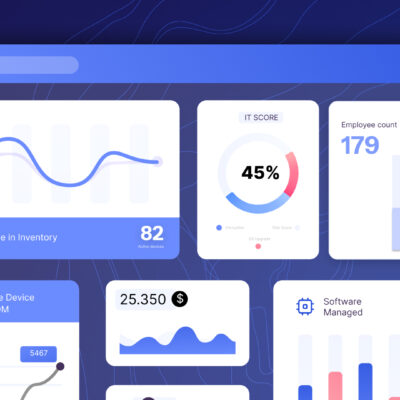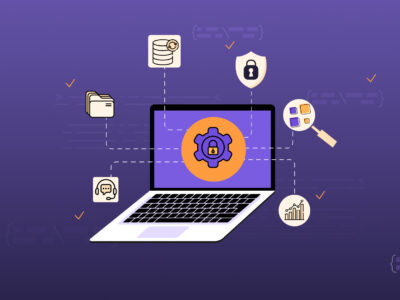5 Best Practices for Cloud Management
Over the past two years, cloud services have become a fundamental necessity for organizations worldwide. Every business is on the lookout for ways to save time, increase productivity, and make lives a little bit easier in the workplace. Staying innovative and competitive is key to success, and cloud management has been shaping the future of most enterprises today.
While cloud technologies allow you to interpret and analyze information faster, it’s essential to know the best practices to follow to ensure your data is secured. If you’ve just moved your storage applications or website into a cloud network, your journey has just begun.
What is Cloud Management?

Cloud management is the process of evaluating, monitoring, and optimizing cloud computing based on solutions and services to produce desired efficiency and performance. Organizations in different sectors use cloud management to optimize data, infrastructure, and services on the cloud. The practice of cloud management integrates different software products and technologies to provide a cohesive management process and strategy.
Cloud Management Best Practices

As many organizations adopt the cloud, it’s important to efficiently manage cloud services to fully make the most of its benefits. Using cloud management platforms makes everything simpler and easier by giving you a one-stop shop for all your operational, financial, storage, and privacy needs for cloud environments. With that said, we rounded up the best strategies you need to embrace for effective cloud management.
Choose the Right Software
Whether you’re a start-up with limited resources or a big firm with many exciting plans for your organization, having the right cloud management software can help you execute your strategy more efficiently. To start your journey, it’s essential to understand your specific business needs first to effectively choose a suitable cloud provider. Cloud management software solutions operate like virtual machines as they help you analyze and interpret data faster.
Monitor and Optimize Your Cloud Infrastructure
Cloud management makes everything faster and more convenient. However, it doesn’t necessarily mean your work is already done. Many organizations make this mistake and end up going back to their old habits over time. To keep your cloud infrastructure in check, continuously monitor your hosts, costs, changes, users, permissions, and breaches. After all, it’s better to spot issues before they get out of control.
Develop a Risk Plan
Risk management is always considered when it comes to cloud management. As many organizations believe that their provider will take care of all concerns regarding security, privacy, availability, and reliability — not all service providers will take the heavy lifting in these areas. So it’s highly recommended for organizations to develop a risk plan even if the data is in the cloud. It’s always best to be prepared, just in case problems arise.
Have a Strong Access Management
Strong access management means knowing who can access your data, or ensuring only those who truly need it can access your organization’s sensitive data or applications. Therefore, rules and roles must be clearly defined so you know who has access to them and why.
Stay Up to Date with Security and Software Updates
No matter what kind of cloud management platform you’re operating, it’s vital to keep your security and software updates current. This keeps your data protected from falling into the wrong hands. Keep in mind that hackers are always working behind the scenes to gain access to your confidential information. (See The Most Common Types of Cyberattacks and How You Can Prevent Them here.) Therefore, you should make sure you are operating the most updated programs and applications to optimize your cloud management.

Overall, managing your cloud services is a great way to manage several infrastructures all at once — as they become the focus of attention for organizations to increase productivity, increase business goals, and maintain cost-efficiency. By following the best practices we rounded up above, you are on your way to maximizing the benefits of your cloud management platforms.
If you’re considering leaping to the cloud or whether you have begun planning to do so, you can consider getting professional help. IT solutions providers like ZenAdmin can help you manage your cloud. They can handle software furnishing and permission management, cloud organization, and policy configuration. That way you can skip all the tedious tasks and focus on what’s really important – your business.












